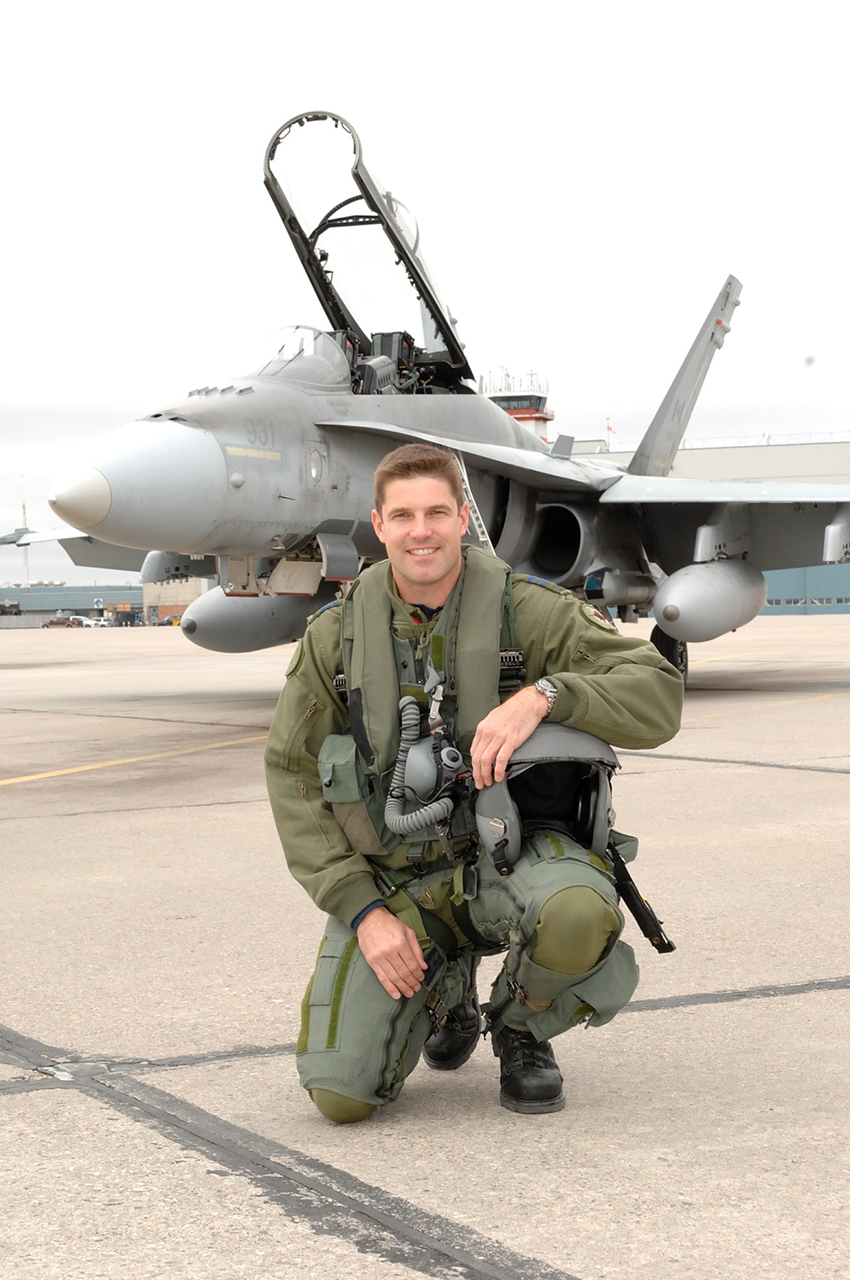Q&A with Jeremy Hansen
What motivated Jeremy Hansen to become an astronaut? What is the best career advice he's ever received?
Space and exploration
-
Why did you want to become an astronaut?
The idea of exploring new places and accomplishing the seemingly impossible excites me. Being an astronaut affords the opportunity to be part of an amazing team that creates solutions for complex problems. To do something that has never been done before means that your team is very likely to face failure. I like the fact that in space, we are committed to bold goals to the extent that we will not let periodic failure stop our forward progress.
Work and studies
-
What motivated you to study in your fields?
I studied space science at the Royal Military College of Canada, as I wanted to understand more about orbital mechanics and how to design systems to work in the harsh environment of space. It was a fascinating field of study. I didn't realize it when I chose space science, but as I learnt more, I was fascinated by the endless possibilities to use unique orbits and satellite infrastructure to deliver services to humans around the globe and to better understand planet Earth.
-
What was your previous job?
I joined the Canadian Forces at the age of 18, completed my undergraduate and graduate degrees at the Royal Military College of Canada, and then started military pilot training. I was selected to complete CF-18 fighter jet training at 410 Squadron, following which I completed two tours with 441 and 409 Tactical Fighter Squadrons, where I learned to employ the CF-18 across a variety of different missions.
-
What did you like best about your job and how has it prepared you for a career as astronaut?
Flying fighter jets was an exciting career given the diverse challenges it presented. CF-18 fighter pilots fly alone in their individual aircraft but always as part of a team of aircraft. Anywhere from two up to dozens of aircraft working together depending on the mission. The extensive practice, commitment to constant improvement, teamwork and risk management in a very dangerous environment are skill sets very applicable to the role of astronaut.
Canadian astronauts Jeremy Hansen and David Saint-Jacques explain why piloting planes is an integral part of astronaut training. (Credit: CSA)
Advice and inspiration
-
What is your motto?
Accept and appreciate where you are, stay in the mindset of creating solutions to the challenges you face, and find happiness in every day.
-
What is the best career advice you've ever received?
When striving toward your goals, seek out paths that are of most interest for you. When you are doing things of great interest, you will generally perform better, contribute more and have more fun doing it. This was the essence of the advice Chris Hadfield gave me when I was at the Royal Military College of Canada aspiring to be an astronaut.
-
Think back to a teacher who had a positive impact on your life. What did she/he do to influence you?
I had a number of teachers who fuelled my inquisitive nature by teaching me to enjoy learning through problem solving and reading to further my understanding. They also developed my patience to sit with problems that I couldn't easily and intuitively solve. They took a long-term approach to developing me as a life-long learner. I was not memorizing for a test or exam; I was learning how to learn. I use that skill set every day now (still working on it).
In this fun video, CSA astronaut Jeremy Hansen must make difficult choices. Get to know him better! (Credit: CSA)
CSA astronaut Jeremy Hansen answers 10 flash questions and unveils little known things about himself. (Credit: CSA)




